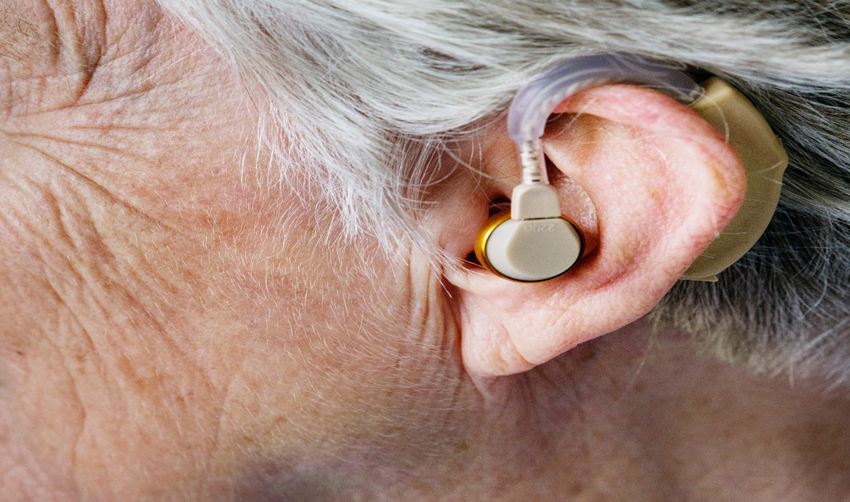Top Emerging Technology Trends in Healthcare Industry

Who would have imagined that telemedicine, once deemed nearly impossible, could become a reality? Yet, here we are! The future of healthcare is undoubtedly becoming more high-tech, and in 2024, we can expect to witness further breakthroughs and emerging healthcare technology trends that will revolutionize the industry.
A survey conducted by the National Library of Medicine reveals that a significant majority (over 50%) of patients surveyed expressed comfort with a healthcare system centered around telehealth visits, as long as their care needs are adequately met. This underscores the increasing acceptance and demand for telemedicine among patients.
And if you work in the healthcare industry, it is crucial to stay informed about the latest technological advancements in healthcare. Healthcare organizations and stakeholders should also keep a close watch on emerging tools and technologies that promise more accurate and comprehensive care.
So, let’s not wait any longer! Explore the Technology trends in healthcare that are set to shape the industry and pave the way for innovative and improved patient care.
Artificial Intelligence
Among different industries where Artificial Intelligence (AI) development prevails, the healthcare sector stands out as a notable frontrunner. In the year 2024, it comes as no astonishment that AI will shape forthcoming transformations in healthcare. Leveraging Artificial intelligence in healthcare can empower medical practitioners in myriad facets, including:
- Next-Gen Radiology: AI plays a pivotal role in developing advanced radiology devices that incorporate automated prediction capabilities. This empowers radiologists to achieve more accurate and efficient diagnoses, enhancing patient care.
- Healthcare in every corner: AI has the potential to expand healthcare services to underdeveloped and inaccessible regions. By alleviating the burden on qualified professionals like nurses through automation, AI can bridge the healthcare gap and provide essential care to underserved communities.
- Enhanced Diagnosis: AI is widely utilized in achieving more efficient and error-reduced diagnoses. Leveraging AI algorithms, medical practitioners can leverage comprehensive data analysis to obtain accurate insights and improve diagnostic precision.
- Early Cancer Detection: AI enables medical practitioners to detect cancer at earlier stages. Through the analysis of medical images and patient data, AI-powered systems can identify potential cancerous cells or lesions, facilitating early intervention and potentially saving lives.
- Intelligent Data Management: AI assists in effectively managing and mining medical data. By leveraging AI’s capabilities, healthcare providers can extract valuable insights from complex datasets, leading to improved decision-making and personalized patient care.
- Chatbot Support: AI-driven chatbots are becoming increasingly prevalent in the healthcare sector. These virtual assistants can provide real-time support, answer patient queries, offer basic medical advice, and even schedule appointments, improving patient engagement and accessibility to healthcare services.
IoMT Expansion
The emergence of the Internet of Medical Things (IoMT) has sparked considerable interest and will continue to do so. As a leading technology trends in healthcare, IoMT represents a groundbreaking leap in digital healthcare trends, demanding the attention of all industry stakeholders. Its potential is nothing short of transformative.
IoMT enables the seamless collection and transmission of vital health data from wearable devices like Smartwatches and pulsometers. These devices monitor various body vitals, such as heart rate, body temperature, and blood pressure, providing valuable insights for diagnosis and treatment. This data can be shared with healthcare providers, allowing for remote monitoring and proactive healthcare management.
The adoption of IoMT is transforming how individuals proactively manage their health. Studies have shown that a significant number of people, including Australians, utilize smartphones and other tech solutions to monitor conditions like diabetes and hypertension. Empowered by technology, individuals are taking control of their well-being.
Businesses looking for growth opportunities can gain a competitive edge by partnering with reputable IoT application development services. They can help develop IoMT-based solutions, staying ahead of the competition and capitalizing on the latest healthcare technology trends.
AR and VR for Education and Diagnosis
Virtual reality (VR), augmented reality (AR), and mixed reality (MR) are transforming healthcare by enhancing medical education, decision-making, and product development.
Virtual reality in healthcare allows medical students to practice skills in virtual environments, simulating real-life situations. Augmented reality in healthcare provides additional information or virtual objects overlaid onto the real world, offering hands-free access to data during patient care. MR combines virtual and real-life objects, creating digital twins for testing medical devices and materials, accelerating the prototyping process and reducing costs. It also enables remote surgeries and operations with remotely managed equipment.
These technologies improve efficiency, accuracy, and cost-effectiveness in healthcare, empowering medical professionals with immersive experiences and advanced tools. The integration of VR, AR, and MR in healthcare holds great potential for medical education, patient care, and product development, ultimately benefiting both healthcare providers and patients.
Nanomedicine
Nanotechnology, although still seeming like something out of science fiction, is gradually becoming a part of our daily lives. In late 2021, groundbreaking news made headlines as scientists unveiled the creation of tiny self-replicating organic robots called Xenobots. As we enter 2024, the field of nanomedicine holds the promise of revolutionary breakthroughs.
Nanomedicine harnesses the power of nanoscale materials and objects, such as biocompatible nanoparticles, nanoelectronic devices, and nanorobots, to perform specific medical tasks and interventions in living organisms. This includes precise diagnostics and targeted treatments.
For instance, nanorobots could serve as cancer cells or virus hunters, deployed by injecting a group of them into a patient’s bloodstream. These technology trends in healthcare show great potential in combating genetic, oncologic, and autoimmune diseases at a cellular level, offering new possibilities for treating conditions like tumors, arthritis, and more.
Robotic Support
Robots have already been part of the healthcare industry. They have been involved in certain areas where human efforts go in vain. With all the emerging healthcare technology trends, you will always find an upgraded and advanced version of robotics in healthcare technology standing each year in the market. Robots are the future of the medical industry.
It helps by giving additional time to medical personnel other than their routine tasks which eventually takes away most of their time in the hospitals. This also helps in making medical procedures safer and less costly for patients. Robots are well programmed to perform small surgeries accurately in tiny places and transport dangerous substances needed in the patient’s body without any fuss.
Blockchain for Secure Health Data Exchange
Igniting a digital revolution in healthcare, blockchain technology is rewriting the rules of secure health data exchange. With its decentralized and transparent nature, blockchain is reshaping how patient information is shared among healthcare providers, championing interoperability, and fortifying data privacy.
Imagine a futuristic ecosystem where patient records are encrypted, then stored in blocks linked together like an unbreakable chain. This distributed ledger approach ensures that health data remains confidential, impervious to tampering or unauthorized access.
By harnessing blockchain in healthcare, providers can seamlessly access patient information, eliminating tedious administrative tasks and potential errors. Meanwhile, patients regain control over their own data, granting permissions and tracking its usage, instilling a newfound sense of empowerment and trust.
One notable example is MedRec, a trailblazing blockchain system crafted by innovative researchers. MedRec empowers patients to securely manage their medical records while enabling healthcare professionals to access pertinent information efficiently.
Through blockchain’s transformative influence, healthcare digital transformation leaps forward, unlocking a future where data flows seamlessly, privacy prevails, and patient-centric care thrives.
mHealth Apps for Remote Monitoring
Mobile health (mHealth) apps are revolutionizing healthcare by bringing medical monitoring and management right to the palm of your hand. These apps empower patients to take charge of their health conditions, track vital signs, stay on top of medication schedules, and connect with healthcare providers from the comfort of their own homes.
Imagine having a comprehensive health companion in your pocket, providing real-time insights and personalized guidance. With these mHealth apps, you can easily monitor your blood pressure, heart rate, blood sugar levels, and other vital signs using compatible devices or sensors. These apps can also send timely medication reminders, helping you stay on track with your treatment plan.
The true power of these Healthcare software trends facilitate remote communication with healthcare providers. Through secure messaging or video consultations, you can conveniently reach out to your doctor or nurse, discuss symptoms, share progress updates, and receive expert guidance—all without the need for unnecessary hospital visits.
Whether you have a chronic condition, are recovering from surgery, or simply want to stay proactive about your well-being, mHealth apps put healthcare at your fingertips. As a healthcare industry professional, you may be seeking innovative solutions but might not be aware of how to develop them. In such cases, partnering with a leading healthcare software development company can provide the expertise you need to develop a customized solution that meets your specific requirements.
Wearable Devices
Imagine having a sleek and advanced device on your wrist, like a stylish companion that helps you stay healthy. This extraordinary device diligently keeps track of your heart rate, sleep patterns, and physical activities, gathering valuable information about your well-being.
But the significance of these devices goes beyond personal benefits. They are transforming healthcare as we know it. By using the real-time health data they provide, doctors and healthcare professionals gain deep insights into your condition. With this knowledge, they can offer personalized care and tailored treatments to improve your overall health outcomes.
These wearable devices are revolutionizing the way we monitor our health and interact with healthcare providers. They empower us to take charge of our well-being and provide valuable information that enhances the quality of care we receive. Use the future of health monitoring and unlock a new level of self-awareness and wellness with wearable technology in healthcare.
Voice-Enabled Assistants
Voice-enabled assistants like Amazon’s Alexa and Google Assistant are transforming the healthcare landscape, by providing hands-free interaction and revolutionizing everyday tasks. These smart assistants are being seamlessly integrated into healthcare systems, allowing patients and healthcare providers to interact with technology in a more natural and efficient way.
Imagine a scenario where a patient can simply ask their voice assistant to schedule an appointment with their doctor, inquire about their medication instructions, or access their medical records. With a simple voice command, they can receive personalized health information, reminders for taking medication, or even engage in telehealth consultations.
For example, Mayo Clinic, a renowned healthcare institution, has integrated its services with Amazon’s Alexa. Patients can ask Alexa about common symptoms, and medication information, and receive guidance on self-care for minor ailments. This innovative use of voice technology enhances patient convenience, accessibility, and engagement.
So leveraging voice-enabled assistants, healthcare providers can streamline administrative tasks, improve patient satisfaction, and deliver more personalized care. This technology is shaping a future where healthcare interactions are effortless, empowering patients to take control of their health with just their voice.
Implants and 3D Bioprinting
The road to fully harnessing the potential of smart implants and 3D bioprinting is undoubtedly long, but in 2024, these groundbreaking technologies are already paving the way for better patient outcomes and enhanced quality of care.
Smart implants, miniature computerized devices implanted within the body, monitor health conditions and have the potential to restore certain functionalities for individuals with paralysis or blindness. For instance, scientists recently achieved a remarkable feat by implanting a microelectrode array into the visual cortex of a blind individual, enabling her to perceive shapes and letters—an incredible breakthrough.
On the other hand, 3D bioprinting utilizes advanced printing techniques and bioink to create living tissue and organs. This innovative approach revolutionizes regenerative medicine, allowing the printing of bones, cartilage, and even complete organs like hearts and livers.
Digital Therapeutics
Digital therapeutics is an emerging technology trend in the healthcare industry that holds great promise for transforming patient care and disease management. Digital therapeutics refers to evidence-based interventions delivered through software or digital platforms, often in the form of mobile applications, to prevent, manage, or treat medical conditions.
These digital interventions are designed to complement traditional medical treatments and therapies, providing patients with personalized and interactive tools to improve their health outcomes. They can address a wide range of conditions, including chronic diseases, mental health disorders, and lifestyle-related issues.
Digital therapeutics typically leverage a combination of data analytics, behavioral science, and user-centric design to deliver targeted interventions. They may incorporate elements such as cognitive behavioral therapy, medication adherence support, lifestyle tracking, remote monitoring, and personalized coaching.
The benefits of digital therapeutics include increased accessibility, convenience, scalability, and cost-effectiveness compared to traditional interventions. They empower patients to take an active role in managing their health and provide healthcare providers with valuable insights and data for more personalized and informed decision-making.
Cloud-based Applications
Registration through papers and maintaining patient records has become a past story. Today, hospitals and all doctors are storing and managing the patient records over the cloud. This allows them to relate to medical data and test records 27/7 and access it as per their convenience.
Since it’s all about the data nowadays, the cloud computing technology has revolutionized the way data is stored. The cloud technology has increased the information accessibility for both the patients and doctor alike thus streamlining the process. This has benefited the patients in a way that they can now avail their test results on the cloud without going through lines and pain of waiting in line.
Revolutionize Healthcare With Our Cutting-edge App Development Services!
Technological advances in the healthcare industry have already given a glimpse of the latest and upcoming field of healthcare digital transformation. The transformation seems to be beneficial for both patients and hospitals. It’s the introduction of mutual benefit that promotes growth and harmony amongst both the parties.
It is believed that if the digital transformation in healthcare takes full force over the medical industry, then the patients could drive their health on their own and seek physicians help from the comfort of their home. Also, the digitization will lead them to a better road that allows full access to quality doctors in no time and healthcare facilities at a very affordable cost easily without any pain.
Whether you’re interested in developing a custom healthcare app or exploring machine learning development, Finoit Technologies is your trusted partner. With years of industry experience, we have successfully delivered high-quality mobile application development services to numerous organizations.
Our team specializes in healthcare app development, leveraging our expertise to enhance the patient experience and automate tedious processes. We prioritize accuracy, data privacy, and security in all our healthcare applications, conducting extensive research, development, and testing to meet the highest standards.
Book a consultation with us today info@finoit.com so that we can help you to develop a healthcare app tailored to your unique needs. Together, we can navigate future industry trends and revolutionize the healthcare landscape. Join us on this transformative journey. Contact Finoit Technologies now!

